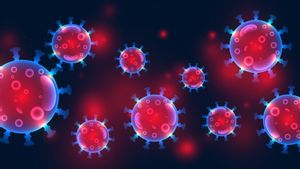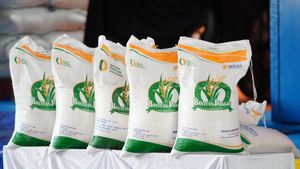YOGYAKARTA - One of the important organs in the human digestive system is the intestines, which are responsible for absorbing nutrients from the foods we consume. However, over time, food residues, toxins, and other useless substances can accumulate in the intestines, causing "diffusion", which not only disturbs digestion but also overall body health. This article will discuss the characteristics of the dirty intestine, its effects on health, and how to clean it.
Getting To Know Dirty Usus
Dirty usus refers to a situation where there is an accumulation of residual substances, toxins, or other harmful substances in the intestines. This condition generally occurs due to unhealthy diets, lack of fiber intake, and bad habits such as eating processed foods or drinking less water. When the intestine does not function optimally, various health problems can arise.
Here are some general signs of dirty intestines:
1. Convoluted or Difficulty Defecating
One of the main symptoms of dirty intestines is constipation. When the intestines do not work properly, food residues and dirt are difficult to remove, resulting in long constipation. Exhaust becomes irregular, and feces are usually hard and difficult to remove. This is one of the main signs that the intestine is not clean.
2. Stomach bloating and excess gas
Excessive gas production and bloating feelings often indicate a buildup of food residue or poison in the intestines. Extortion that is full of dirt tends to be fermented, producing excess gases. As a result, the stomach feels uncomfortable and is often accompanied by excessive farting.
3. Easy to get tired
Gross use can affect the body's ability to absorb nutrients. When the absorption of nutrients is disturbed, the body does not get enough energy from food, causes fatigue and lack of energy, even if a person has rested enough.
4. Bad Oral Smell
One of the signs of dirty intestines that are often neglected is the smell of the mouth. The buildup of poison in the intestines can cause harmful substances to spread into the bloodstream, affecting the smell of the mouth. Even though it has maintained oral hygiene, an unpleasant odor will still exist if the source of the problem comes from the intestines.
5. Kusam Or Acne Skin
Skin health often reflects the condition of the intestines. When the intestine is full of dirt, toxins can accumulate in the body, which ultimately has an impact on the skin. This can make the skin look dull, dry, and more susceptible to acne, especially if the body is not able to remove toxins properly through the digestive system.
6. Repeated Headaches
The toxins that accumulate in the body, including in the intestines, can trigger persistent headaches. Not wasted poison will interfere with the nervous system, which can cause headaches or migraines. If headaches appear for no apparent reason, your intestines may need to be cleaned.
7. Weight Increase
The accumulation of dirt and toxins in the intestines can disrupt metabolism, so the body cannot burn calories properly. This can lead to an increase in weight, even if the diet remains the same. In addition, unhealthy intestines can trigger excessive hunger and the desire to eat unhealthy foods.
8. Sleep disorders
An imbalance in digestion due to dirty intestines can affect the quality of sleep. Toxics in the intestines can interfere with hormones that play a role in regulating sleep, so that a person can experience difficulty sleeping or insomnia.
SEE ALSO:
How To Overcome Dirty Usus
If you experience some signs of a dirty intestine as mentioned, here are some steps that can be taken to clean your intestines and improve your health:
I. Increase Fiber Consumption
Fiber is very important for gut health. Fiber-rich foods, such as fruits, vegetables, and seeds, help improve digestion and remove food residue from the intestines. Fiber is also effective in reducing the buildup of toxins in the body.
II. Drink enough water
Water helps maintain gut hydration and defecate. Make sure to drink at least 8 glasses of water a day to help clean the intestines from dirt and poison.
III. Reduce OlahAN Food Consumption
Processed foods are generally low in fiber and contain preservatives and additional substances that can accumulate in the intestines. Reducing the consumption of processed foods and replacing them with fresh foods can help clean the intestines naturally.
IV. Perform Periodic Detoxification
Detox programs or intestinal cleansing can help remove toxins from the body. This often involves consuming fruit juice, fresh vegetables, and high-fiber foods to clean the digestive system.
V. Consult with Doctor
If the symptoms you experience are quite severe or never gone away, you should consult a doctor. Further examination may be needed, and doctors can provide medication or special advice to clean the intestines effectively.
In addition, you also need to know what 5 Dirty Usus Cleaning Foods
So after knowing the characteristics of the dirty intestine, see other interesting news on VOI.ID, it's time to revolutionize news!
The English, Chinese, Japanese, Arabic, and French versions are automatically generated by the AI. So there may still be inaccuracies in translating, please always see Indonesian as our main language. (system supported by DigitalSiber.id)


















